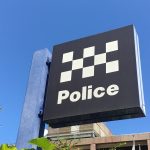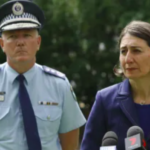Alternatives to Calling the Police in New South Wales

The police killing of George Floyd in the United States has led to protests across the globe calling for changes to policing – including an end to police brutality and the targeting of certain groups, as well as better training.
The outrage over the killing has also led to defunding of police departments – a misunderstood term which actually means diverting funds towards addressing the underlying causes of crime as well as to groups such as mental health professionals which are often better able to deal with situations and persons. It does not mean getting rid of police altogether.
The protests have also led to significant changes in policing in the United States – including new laws which prohibit choke holds and which remove the partial immunity from prosecution enjoyed by officers, making it easier to prosecute them for criminal conduct.
And while apologists for police brutality will often chant the mantra, Who do you call when you need help?, the fact of the matter is that calling police may not be the best option when dealing with a difficult situation.
Here are some things to consider before calling the police in NSW.
Toleration
The first thing to consider is whether a situation requires intervention at all.
Most people have an exaggerated perception about their risk of being a victim of crime. As such, we all tend to overplay the danger of situations where we see someone acting ‘suspicious’ or ‘strange’.
To avoid overreaction, it may be useful to ask yourself questions such as: Is someone at risk of harm? Does this situation require immediate attention? If not, it’s unlikely that the situation requires the police.
Certain crimes such as public drunkenness or drug use may be upsetting if you see them, but don’t pose any immediate harms to others unless they reach a particularly brazen or obnoxious level.
To what extent is your urge to call the police actually a wish to ‘dob in’ someone you think is acting foolishly? If public safety isn’t the priority, don’t call.
Self-Help
Modern living has made us incredibly conflict averse and overly reliant on law enforcement to solve community issues.
One common reason for calling the police is due to noise complaints by neighbours. However, this can just as easily be resolved by speaking directly to your neighbour about their behaviour. This confrontation can be made a lot less daunting with the support of a friend or if neighbours go as a group.
More serious matters, such as if you observe a person being verbally harassed, can also be effectively resolved through calm, targeted bystander intervention.
Contrary to popular belief, most strangers will have your back if you confront anti-social behaviour in public.
De-escalating a situation can be as simple as speaking in a calm voice, not being drawn in by insults / attempts to escalate the conflict and setting firm boundaries on appropriate behaviour.
Many ways of improving public safety begin by opening a dialogue with your community and being willing to ask your neighbours or friends for support if you have to resolve a difficult issue directly.
Alternative Help
Not every situation can be resolved without third-party help.
If someone appears to be suffering from a mental health problem and is not an immediate risk of harm to themselves or others, the NSW Mental Health Access Line can help provide advice on what to do.
If you have concerns about a child or young person’s safety, but there is no immediate risk of harm, the NSW Health Child Wellbeing Unit can be contacted so that trained child protection staff can assess and manage the risk.
Ongoing neighbour noise issues can be resolved by complaining to the NSW EPA and resolved through mediation or local council enforcement processes. Other neighbourhood conflicts can be assisted through dispute resolution bodies via Community Justice Centres.
Finally, if you have been a victim of crime and are not comfortable speaking to police, there may be opportunities for restitution outside traditional criminal justice processes that can help.
Call If Needed
If there is an immediate risk of serious harm to yourself or others, you should contact emergency services for assistance.
Some situations still require the organised use of force to protect the public, and the primary body for this is currently the NSW Police Force.
It’s important that you do not exaggerate a situation when you call for help, so that law enforcement act proportionately.
For example, if you observe a person who appears to be experiencing hallucinations and at risk of harming themselves – make it very clear on the phone that this is a mental health issue and they do not pose a threat to others.
If you can, observe the police in their response to the situation to ensure they act responsibly.
Ultimately, until we have robust alternatives, sometimes calling the police may be your only option.







